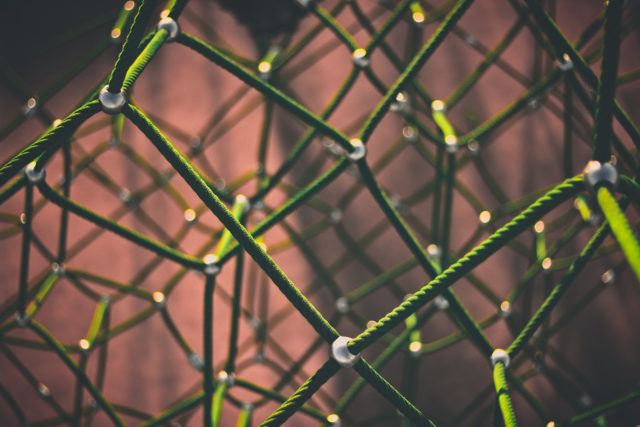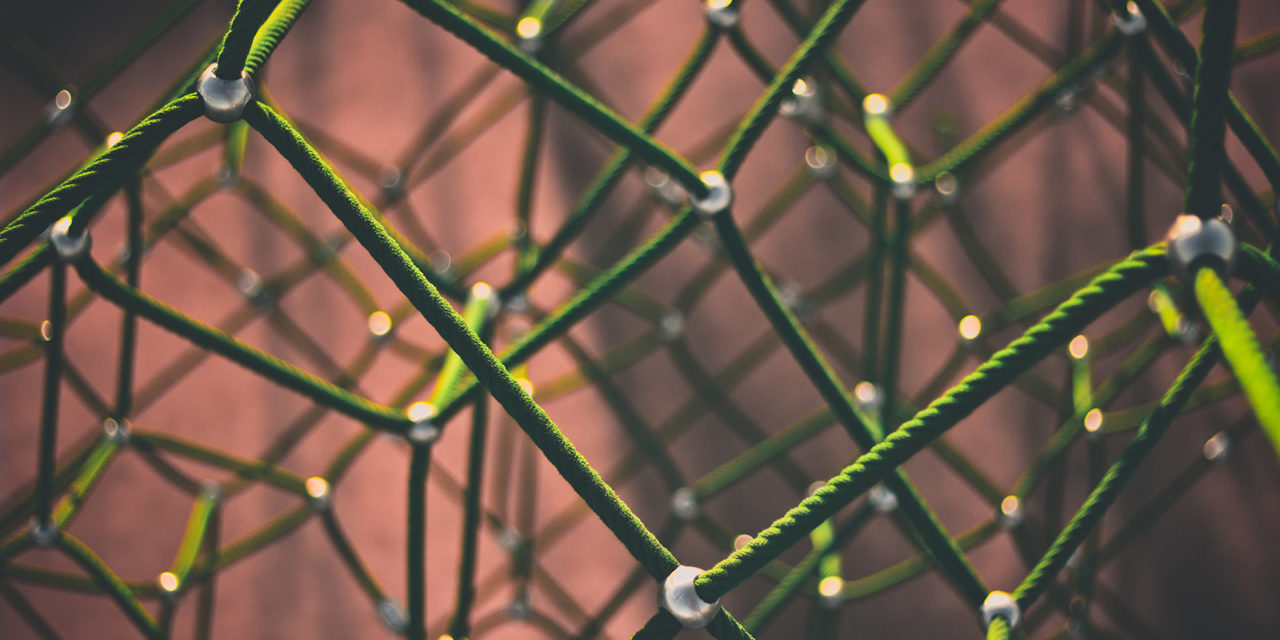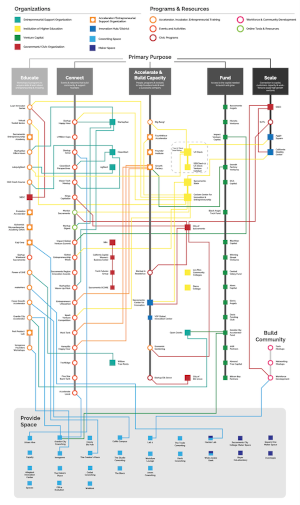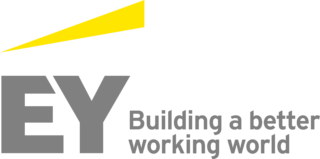Ecosystem connectedness is strong factor in startup and startup ecosystem success.

At a packed Hacker Lab on a hot August night in 2016, successful entrepreneur D.J. Stephan, co-founder of Skylope, was asked to share his thoughts on what the Sacramento startup community needed to do. I’ll never forget his reply:
“We gotta connect the fabric of our community. That should be our competitive advantage. So it’s more meetups like these, it’s more buy-in from that. That’s the biggest thing that was kind of disappointing to me when I first came back to Sacramento in 2011 was just how fragmented the marketplace was. The VCs were over here, the ideas were over here, the technical individuals were over there. It was all fragmented and siloed. That didn’t make any sense to me. We’re such a small community. We should be able to go to one meetup like this and be so plugged in that we have all the resources we need to be successful at one session like that. That’s our competitive advantage. We need to embrace that as a community, and so, help each other out, continue to leverage that, continue to make those connections. That’s the number one thing we need to do to put Sacramento on the map.”
(I captured D.J.s reply on my iPhone and shared it in a previous article about the event.)
That concept of connection, “connecting the fabric our community,” resonated strongly with me then and it still does. But the concept isn’t just inspiring and motivational. The idea of connectedness as a strong factor in startup success also has support from experts and research.
Global Startup Ecosystem Report 2018
In the latest Global Startup Ecosystem Report the authors devote an entire section to Local Connectedness.
“Local Connectedness—especially relationships with other founders—is strongly associated with higher startup performance. Just as importantly, not being locally connected is strongly associated with lower startup performance.”
They go on further to say:
“A healthy Sense of Community fostered by founders helping each other is highly correlated with overall ecosystem performance.”
In their analysis, Local Connectedness comprises four sub-factors:
- Sense of Community
- Local Relationships
- Collisions
- Density
Below are a couple of their insights for Ecosystem Builders to take away
- Work inclusively, connect everyone, including experts and investors. Local Connectedness acts as a multiplier, increasing access to local resources, knowledge, and global connections.
- Invest explicitly in building a strong Sense of Community. When founders help each other and receive help from investors and experts on an informal basis, overall ecosystem performance is enhanced.
Along these lines we hope some day to be able to expand on our informal monthly networking events and organize workshops that connect founders to experts. We’d like to organize pitch competitions to connect founders to investors and bootcamps to broker connection opportunities where entrepreneurs can get help from investors and experts on an informal basis, and thereby enhance ecosystem performance.
Grow Your Own: Entrepreneurship-based Economic Development for Local Communities
In the recently released publication, “Grow Your Own: Entrepreneurship-based Economic Development for Local Communities,” published by the Federal Reserve Bank of Kansas City, author Dell Gines Outlines the “5 Cs of the entrepreneurship ecosystem”:
- Capital – Financial Resources
- Capability – Entrepreneur & Owner Skillset
- Climate – Regulatory, Economic Development & Policy Environment
- Culture – The local communities’ perception & support of entrepreneurship
- Connection – Resource & Relationship Network
Gines goes on to define the Connection component as:
“Formal and informal relationships that support entrepreneurs, create business relationships and opportunities and provide mentoring and support relationships help small businesses grow. These relationships can occur both within a specific industry, such as trade associations and industry networking groups as well as general networking and relationship building activities. An effective ecosystem provides a variety of ways for entrepreneurs to network and build relationships that increase business opportunities and growth.”
Ten Truths About Entrepreneurial Ecosystems
In an article targeted at angel investors, Norris Krueger distills the early-stage ecosystem down into ten research-backed takeaways. One of those, not surprisingly, is a Focus on the Connectors.
“Focus on the super-connectors, the liaison animateurs who are proactive and great at connecting the connectors. Understand the connectivity and find the selfless connectors.”
In another of his takeaways, Krueger points out that strong, successful ecosystems are networks, not hierarchies, and encourages the view that superconnectors really help, and to figure out how to help them, and how to grow more.
We have many of great super-connectors here in Sacramento’s startup ecosystem. I won’t try to list them for fear of forgetting someone, but I will highlight one person who I think is the shining example of a super-connector – StartupSac’s very own co-founder, Laura Good. I don’t believe that there is anybody in this region who is more connected in the startup community than her. Her recognition as one of this year’s Women Who Mean Business is long-overdue.
The Rainforest: The Secret to Building the Next Silicon Valley
In The Rainforest: The Secret to Building the Next Silicon Valley, authors Victor Hwang and Greg Horowitt, explore the success of startup ecosystems like Silicon Valley and outline their theory on how to replicate it and explain the nature of “innovation ecosystems.” The authors argue that the ability of people to connect to each other is critical to the vibrancy of an ecosystem, citing that social barriers create transaction costs which depletes energy from the system.
“Bridging social distances extracts a significant cost on young businesses, and it drags down the vibrancy of the whole system. Society has an incentive to help people bridge social distances, so they can communicate, collaborate, and build commercial enterprises. Institutions that can help entrepreneurs make those connections can lower their transaction costs and promote greater innovation throughout the system.”
“The rate of innovation increases when people can create bridges outside their normal circles of trust, whether across geographies, cultures, social groups, or languages.”
Kauffman Foundation’s Entrepreneurial Ecosystem Building Playbook
The Kauffman Foundation has put together an ecosystem-building playbook to help communities cultivate thriving entrepreneurial ecosystems. The playbook outlines key elements of a thriving entrepreneurial ecosystem. At least two of these directly relate to connections.
- Individuals and institutions that champion entrepreneurship and the ecosystem (Champions & Conveners)
- Intersections that facilitate the interaction of people, ideas, and resources
Champions and Conveners
Champions and conveners promote entrepreneurs, organize the ecosystem and build awareness. They advocate for local entrepreneurs and their companies, bring them together in collaboration, challenge them to grow and push everyone forward. They are the catalysts, connectors, cheerleaders, co-creators and changemakers.
Intersections
“Collisions between people, ideas and resources often allow entrepreneurs to find missing pieces of the puzzles they are trying to solve. Ecosystems must “engineer serendipity” between disparate elements of the network by creating intersections where such collisions can happen.
Intersections may be institutions, such as coworking spaces, research parks or coffee shops that are regularly frequented by entrepreneurs and their supporters. Or they may be events, such as pitch competitions, conferences or meetups.”
So there is real value in the effort to actively connect a startup ecosystem. Startup ecosystem experts and startup founders alike agree that connections are critically important to the success of a startup ecosystem. It may take longer for results to be seen than other efforts take. It’s not as flashy as some other mechanisms used. Drawing a direct causation or correlation from connectors to success metrics may be more difficult.
As I stood there listening to D.J.’s remarks that night I knew immediately that I needed to adopt it as StartupSac’s mission statement. That mission statement has since evolved but connecting is still an integral part of it:
To accelerate Sacramento’s startup and innovation ecosystem by informing, educating, empowering, and connecting its startup founders and innovators.
It’s very rewarding to create opportunities for serendipitous connections. Seeing the results of connections made at events we’ve organized like StartupSac Happy Hours, Innovate Sac, or just out in the trenches of the startup community is gratifying. We appreciate hearing about positive results from directing people to other resources.
But despite our accomplishments, I feel that we’ve only scratched the surface of the impact that we can have on the Sacramento startup and innovation ecosystem. While we’ve organized and held over 20 successful workshops and events, we have the capacity, the ability, and the passion to offer so much more to accelerate this community. There are times when it feels like we haven’t made a big enough impact to move the needle.
So, I reached out to Norris Krueger asking him for his ideas on how a small non-profit with very little funding like StartupSac (a big shout out to our sponsors who make what we do possible) can have a bigger impact on the ecosystem. He responded with some ideas:
- Be relentless (cheerfully relentless) with the bottom-up/entrepreneur-led mantra.
- Celebrate the bottom-up! Instead of celebrating those who control access to resources, celebrate the great connectors!
- One other thing I’m gearing up is to simply ask entrepreneurs & small biz owners “what could we do… that doesn’t cost anything?” Last time we tried it, some totally nutso ideas surfaced… and worked!
So, taking Krueger’s third point to heart, I’m soliciting input from the entrepreneurs out there.
- What are the connections that you made that were key to the success of your business?
- What connections do you need?
- What could StartupSac do, on a very, very limited budget to better connect and add more value to the Sacramento startup community?
If you have examples or anecdotes of how connections have played a role in your success, share them with us – via comments below, social media, in person, email – whatever format works for you. Let’s connect the fabric of our startup community together.














